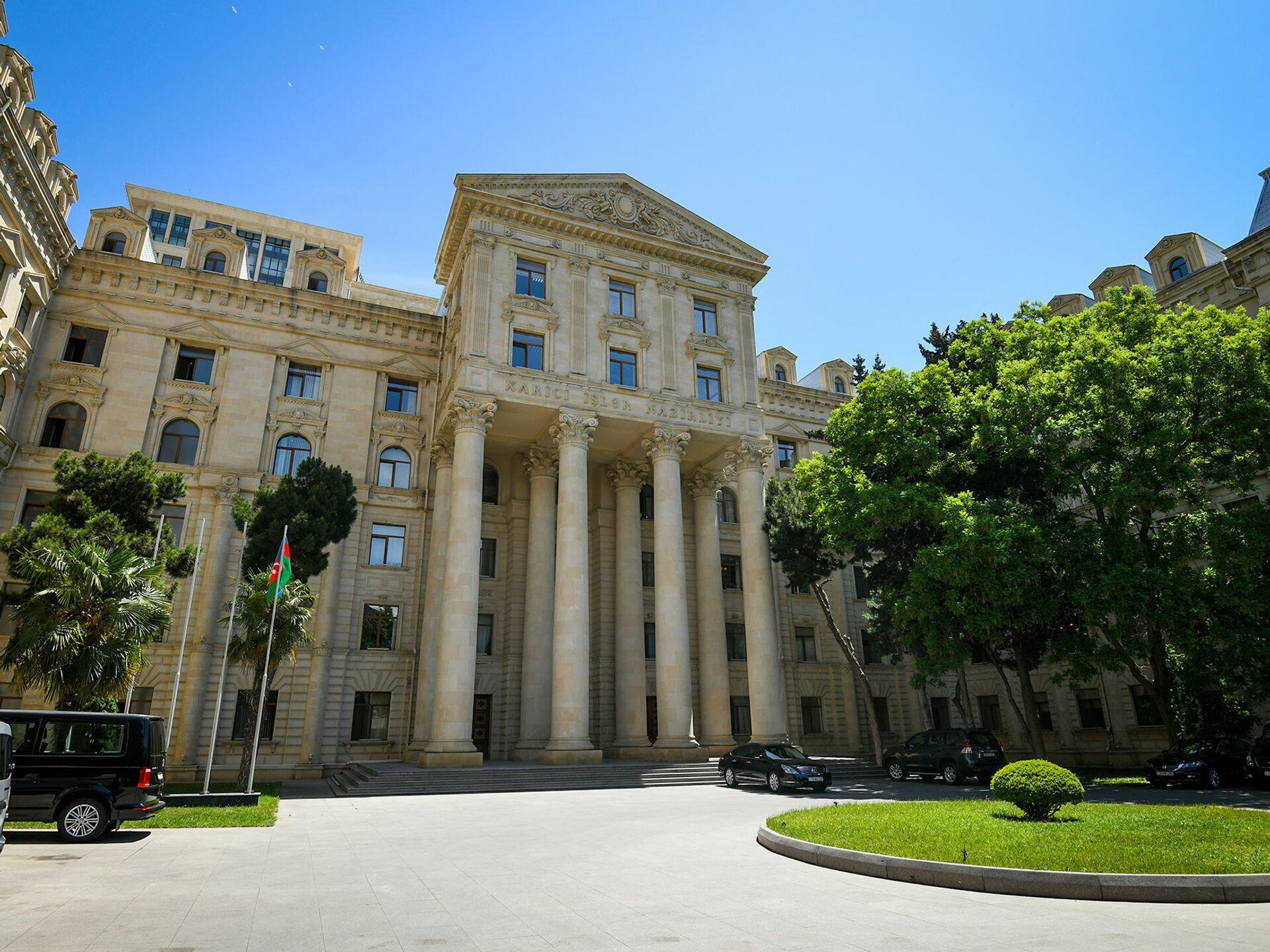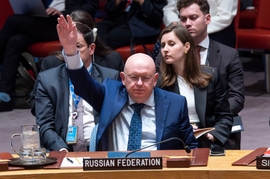Azerbaijani Foreign Ministry condemned the so-called “presidential elections” held by the separatists in the Karabakh region as a gross violation of the Constitution and legislation of Azerbaijan, as well as norms and principles of international law.
According to the ministry, the separatist regime in the Karabakh region is the consequence of the Armenian aggression and ethnic cleansing policy that continued for nearly 30 years, and today it tries to continue its illegal existence due to the military, political, financial, and other types of support from Armenia.
“Holding the so-called ‘elections’ once again clearly shows that Armenia and the puppet regime created by it, which have taken steps to maintain the status quo and continue its occupation policy, are not really interested in the peace process, on the contrary, have taken the path of provocation and escalating the situation,” the ministry said in a statement on September 9.
The ministry called Armenia to abandon claims against the sovereignty and territorial integrity of Azerbaijan and constructively participate in the normalization process in line with its international obligations.
The so-called “presidential elections” in the Karabakh region of Azerbaijan took place on September 9. It came on the heels of the previous self-declared “president” Arayik Harutunyan’s resignation in early September. Last week’s illegal voting elected Samvel Sahramanyan.
In his first remarks as a self-proclaimed “president”, Shahramanyan urged a so-called “status” for Karabakh and “self-determination” rights of the Armenian minority living in the region.
The Foreign Ministry of Azerbaijan urged the international community, in accordance with their obligations within international law, to strongly condemn the illegal activities named as “elections”.
Nabila Massrali, European Union Spokesperson for Foreign Affairs and Security Policy, said in a statement on September 9 that in view of the so-called “presidential elections”, the European Union reiterates that it does not recognize the constitutional and legal framework within which they have been held.
Iran’s Foreign Ministry also voiced its support for the territorial integrity of Azerbaijan. The ministry’s Spokesperson Nasser Kanaani reiterated Tehran’s recognition of the Karabakh region as part of Azerbaijan.
Georgia’s Foreign Ministry also denied the legitimacy of the “elections” in the Karabakh region voicing support for the territorial integrity of Azerbaijan.
Armenia and Azerbaijan have long been at odds over the latter’s Karabakh (Garabagh) region. Following the dissolution of the Soviet Union in 1991, Armenia launched a military campaign against Azerbaijan that lasted until a ceasefire deal was reached in 1994. As a result, Armenia occupied 20 percent of Azerbaijan’s internationally recognized territories. Over 30,000 ethnic Azerbaijanis were killed and one million were expelled from those lands in a brutal ethnic cleansing campaign carried out by Armenia.
On September 27, 2020, the decades-old conflict between the two countries escalated after Armenia’s forces, deployed in occupied Azerbaijani lands, shelled military positions and civilian settlements of Azerbaijan. During counter-attack operations, Azerbaijani forces liberated over 300 settlements, including the cities of Jabrayil, Fuzuli, Zangilan, Gubadli, and Shusha, from nearly 30 years of illegal Armenian occupation. The war concluded with a statement signed on November 10, 2020, under which Armenia returned the occupied Aghdam, Kalbajar, and Lachin districts to Azerbaijan.
Certain parts of Azerbaijan's Karabakh region, monitored by a temporary Russian peacekeeping mission, are currently inhabited by approximately 25,000 residents of Armenian origin. Shortly after the war, the government of Azerbaijan expressed its readiness to reintegrate these individuals into Azerbaijani society, in accordance with the country’s Constitution and laws.
However, Armenia and the separatist regime it backs in the Karabakh region have been demanding so-called “status” and “self-determination” rights for these residents.
Baku rejected such demands as an intervention in Azerbaijan’s internal affairs and reaffirmed that Armenians living in the Karabakh region are Azerbaijani citizens. Azerbaijan considers the involvement of any third party in issues related to their rights and security as unacceptable.
President Ilham Aliyev has publicly announced that there would never be discussions on granting a so-called “status” to the Karabakh region.







 Azerbaijan and Armenia started the process of demarcation of their border on Tuesday, with the installation of the first border markers based on ge...
Azerbaijan and Armenia started the process of demarcation of their border on Tuesday, with the installation of the first border markers based on ge...
 Armenian sappers commenced on Monday mine-clearance operations in the territories adjacent to the Saint Mary Church in village of Voskepar (Armenia...
Armenian sappers commenced on Monday mine-clearance operations in the territories adjacent to the Saint Mary Church in village of Voskepar (Armenia...
 Iran and Pakistan have signed eight cooperation documents in various fields, and agreed to strengthen ties to fight terrorism in the region.
Iran and Pakistan have signed eight cooperation documents in various fields, and agreed to strengthen ties to fight terrorism in the region.
 As the conflict between Ukraine and Russia escalates, the strategic importance of Kharkiv, Ukraine's second-largest city, has come sharply into focus.
As the conflict between Ukraine and Russia escalates, the strategic importance of Kharkiv, Ukraine's second-largest city, has come sharply into focus.
 President Aliyev emphasized the critical role of the North-South Transport Corridor in fostering transport cooperation between Azerbaijan and Russi...
President Aliyev emphasized the critical role of the North-South Transport Corridor in fostering transport cooperation between Azerbaijan and Russi...



